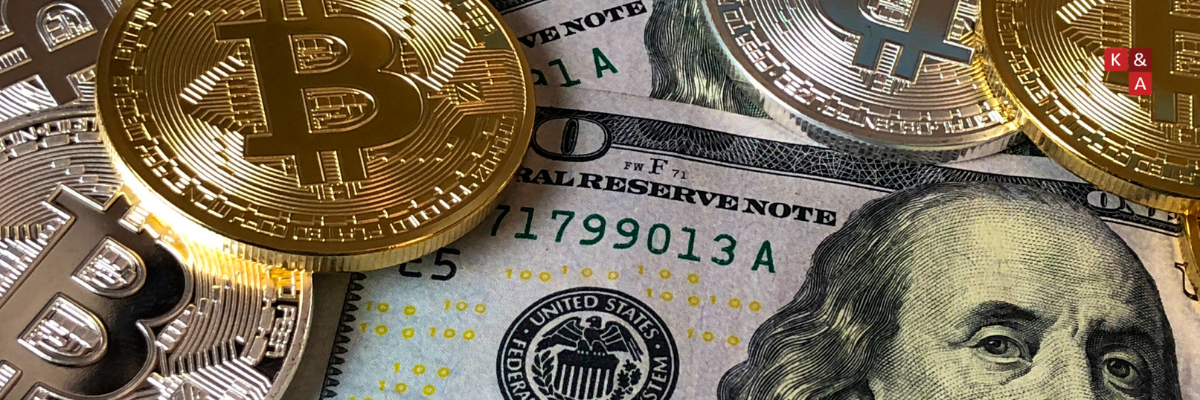By: Taher Kameli & Steven Burke
In our previous post, we reviewed the SEC’s controversial strategy of relying on litigation rather than formal rulemaking to regulate the cryptocurrency space. In this post, the Law Offices of Kameli and Associates will explore the often-overlooked financial incentives associated with pursuing enforcement actions against crypto companies and consider how these incentives may be influencing the Commission’s preference towards litigation.
Remedies Available in SEC Enforcement Actions.
Congress officially created the SEC when it passed the Securities Exchange Act of 1934. Responsible for preserving the integrity of domestic markets and protecting investors, the SEC operates with an express grant of power and authority from Congress. Although originally assigned a minor role, the SEC has grown to hold primary responsibility for enforcing the federal securities laws and regulating U.S. domestic markets. The expansion of responsibilities also provided an opportunity for the SEC to expand its ability to seek more substantive remedies from “bad actors.” Generally speaking, when an individual or entity violates federal securities laws, the SEC may bring an action seeking equitable relief and monetary penalties. Equitable relief includes enjoining the person from certain future conduct, such as selling securities or violating the federal securities laws, and barring or suspending the person from associating with the securities industry and holding office in public companies. Central to the topic of this post, the SEC may also seek monetary relief, in the form of civil penalties and disgorgement. Notably, absent an express order from the court or the commission, funds obtained from civil penalties or disgorgement are generally deposited with the Treasury.
Civil Penalties
Initially limited to asking the courts for injunctive relief and slowly gaining authority to seek other equitable relief, the SEC was not given authority to seek civil penalties until 1988, when congress created section 21A of the Exchange Act. Section 21A permitted the SEC to seek civil penalties in cases of insider trading; however, in 1990, the SEC sought and obtained the general power to seek civil penalties through the Securities Enforcement Remedies and Penny Stock Reform Act. Promptly, the SEC commenced its current practice of seeking both disgorgement and civil penalties in nearly every enforcement action. Notably, Congress intended civil penalties to be paid by the defendant to the Treasury in order to penalize wrongdoers,
Disgorgement
Arising from the equitable remedy of restitution, disgorgement allows the SEC to force those that would violate the federal securities laws to surrender any ill-gotten gains. A judicially created remedy, disgorgement was initially sought as a form of relief ancillary to an injunction and available through the court’s equitable powers. However, in 1968, the first court expressly ordered disgorgement at the SEC’s behest and other courts quickly followed suit. Having moved from a form of ancillary relief to an equitable remedy in its own right, disgorgement quickly became a mainstay in nearly every SEC action, including those that did not seek injunctive relief. Although often considered equivalent to restitution, disgorgement is an action intended to ensure that defendants do not retain the financial benefits of their wrongdoing, by referencing the amount of their gains; whereas restitution refers to amounts paid or to be paid to injured parties, e.g. harmed investors, by referencing the amount of their losses. Although two sides of the same coin, the seemingly innocuous distinction create significant implications, as discussed below.
Unwaveringly, the SEC identifies the primary purpose of disgorgement as preventing the wrongdoer from profiting from his illicit activities, not reimbursing those who have been injured by his conduct. Indeed, the courts historically found no requirement that disgorged funds be used for investor restitution. However, the Supreme Court recently considered the equitable origin of disgorgement and questioned whether returning the funds to harmed investors was truly irrelevant. Namely, in Liu v. SEC, the Supreme Court held that a disgorgement award that (1) does not exceed a wrongdoer’s net profits, and (2) is awarded for victims constitutes equitable relief the SEC is permitted to seek in enforcement actions. However, Congress seemingly rendered these requirement moot with the passage of H.R. 6395 National Defense Authorization Act for Fiscal Year 2021 (“NDAA”). Namely, tucked within the “Other Matters” portion of the NDAA, Congress amended the Exchange Act to provide the SEC with statutory authority to seek disgorgement. No longer limited by its roots in equity, the SEC will likely return to using disgorgement in much the same way as it has in the past. Notably, among other consequences, this means that the SEC will again be free to submit disgorged funds to the Treasury rather than returning them to the investors that the SEC is duty-bound to protect.
Incentives Matter: The Nature of Disgorgement:
In its Annual Report, the Enforcement Division of the SEC identified that a total of $3.59 billion in disgorgement had been recovered during 2020, of which, just $602 million was returned to investors. Notably, the Report also demonstrated that, in 2020, the SEC returned the lowest amount of disgorged funds to investors since 2016, reaching just half of the amount returned in 2019. Accordingly, the Supreme Court’s decision in Liu would likely have substantially altered the SEC’s future use of disgorgement. Nonetheless, with the changes made in the NDAA, we expect to continue seeing a similarly small portion of disgorged funds making their way to investors. Notably, while the SEC did not keep the roughly $3 billion of unreturned disgorgement and $1 billion of civil penalties from its 2020 enforcement actions, it did use some of those amounts to fund its ever-growing whistleblower program, which has paid awards totaling more than $937 million since it began, with around $175 million being paid in 2020 alone. The remaining funds obtained from SEC enforcement actions are transferred to the Treasury for other uses. Accordingly, having asked congress for a budget of just $1.75 billion in 2020, the SEC has the potential to provide a significant source of funds to the Federal Government. Operating with a 2020 surplus in excess $1 billion, there may be little need to explain why congress would move so quickly to remove the requirement that disgorged funds be returned to investors.
Notably, cryptocurrency investments have provided the SEC with a prime target for flexing its disgorgement muscles. With the sheer number of investors involved and the pseudo-anonymity inherent with cryptocurrency, the SEC need not expend much energy to determine that returning funds to investors would likely not be feasible. Moreover, as we saw with the Block.one action and are currently seeing with Ripple, many cryptocurrencies actually increased in value regardless of the violations alleged by the SEC, eliminating the harm that investors generally would suffer from unregistered or fraudulent offerings of traditional securities, namely a decrease or complete loss in value of their investments.
Notably, relating to our prior post, formal rulemaking can be a lengthy and drawn-out process which requires significant resources and does not produce a monetary return. In contrast, enforcement actions, while potentially requiring similar allocations of resources, provides the SEC and Treasury with a non-negligible return on that investment in the form of disgorgement and civil penalties. Moreover, the same aspects of cryptocurrency that present a challenge for formal rulemaking seem to enhance the SEC’s, and Treasury’s, ability to obtain and retain monetary remedies through enforcement actions, seemingly presenting significant incentives to continue regulating the space through litigation and adjudication, at least for the foreseeable future.
[1] The Report also indicated that a total of $1.01 billion of penalties had been imposed during 2020.
[1] The SEC reported that Kokesh v. SEC, which limited the statute of limitation for disgorgement to five years, caused the Commission to forgo over $800 million disgorgement in just over a year.





